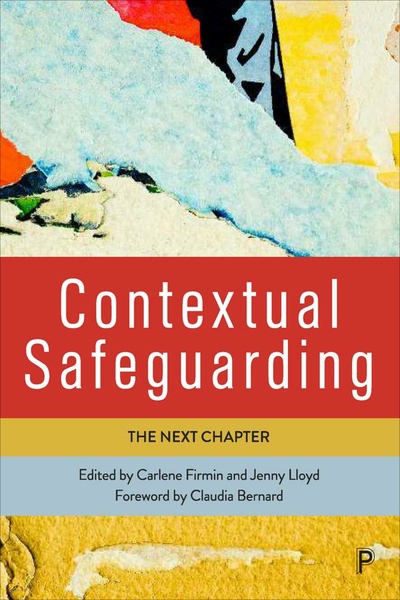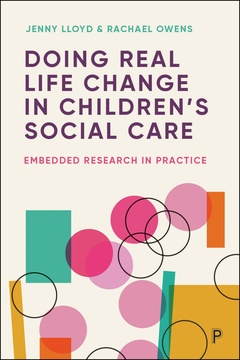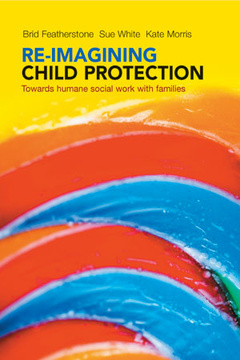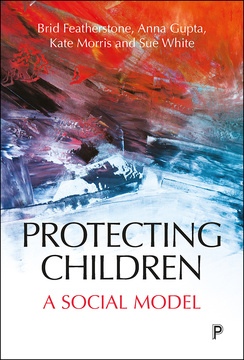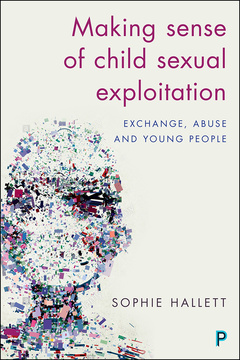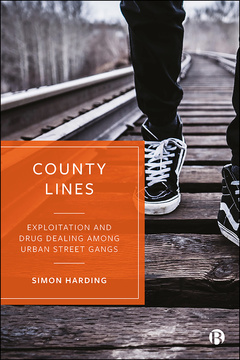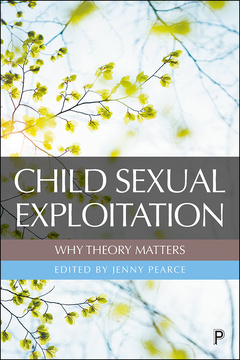Published
Jul 20, 2023Page count
238 pagesISBN
978-1447366430Dimensions
234 x 156 mmImprint
Policy PressPublished
Jul 20, 2023Page count
238 pagesISBN
978-1447366423Dimensions
234 x 156 mmImprint
Policy PressPublished
Jul 20, 2023Page count
238 pagesISBN
978-1447366447Dimensions
234 x 156 mmImprint
Policy PressPublished
Jul 20, 2023Page count
238 pagesISBN
978-1447366447Dimensions
234 x 156 mmImprint
Policy PressHow do we respond to harm faced by young people beyond their front doors? Can practitioners keep young people safe at school, in their neighbourhoods or with their friends when social care systems are designed to work with families?
The Contextual Safeguarding approach has transformed how policy makers, social care leaders, practitioners and researchers understand harm that happens to young people in their communities and what is required to respond. Since 2015 it has been tested across the UK and internationally. This book shares stories from child sexual exploitation, child criminal exploitation and peer violence about what has been learnt on this journey.
For anyone interested in how we safeguard young people beyond their front doors, this book shows how much we have achieved and raises big questions about what more we need to do to ensure young people are safe – whatever the context.
"Excellent book which articulates the challenges of risk management or rather, responding to the myriad risks encountered by children and young people. It is accessible to students and practitioners and I am sure both will benefit from this book." Ross Gibson, University of Strathclyde
"One of the best books about social work that I have read. It brings together theory and practice in new and creative ways to help us think about how to help individuals, change contexts and challenge structural issues. Essential reading for anyone interested in Contextual Safeguarding, contemporary safeguarding or family help." Donald Forrester, Cardiff University
“What could happen if child protection systems began placing care and protection within an extra-familial and community context, rather than solely parental (in)action? Transformative change, full-stop. A must-read for administrators, activists, advocates and academics.” Lisa Merkel-Holguin, University of Colorado
“This highly relevant and insightful book is essential reading for policy makers and practitioners navigating the complexities of safeguarding children at risk of extra-familial harm. Crucially the intersecting structural inequities that increase risk of harm, and the social justice imperative to address these are highlighted throughout.” Anna Gupta, Royal Holloway University of London
“This is a really excellent book, by those who have been at the forefront of tackling vital issues facing young people. It embodies a message of hope as it charts what can be achieved, but also asks important questions about what is needed to effect truly transformative change.” Brid Featherstone, University of Huddersfield
“This thought-provoking book brings together a range of important perspectives on how we think about the social and environmental factors that place children at risk and how services need to adapt – it’s a necessary read.” John Devaney, University of Edinburgh
“This timely book is rich in wisdom and is an important read for anyone seeking to develop their understanding of Contextual Safeguarding. Making innovation mainstream requires tenacity and curiosity – this book inspires both.” Dez Holmes, Research in Practice
Carlene Firmin is Professor of Social Work at Durham University. She previously worked as a Principal Research Fellow at the University of Bedfordshire, where she developed the Contextual Safeguarding programme. In 2011 Carlene became the youngest black woman to receive an MBE for her seminal work on gang-affected young women in the UK.
Jenny Lloyd is Assistant Professor of Sociology at Durham University. She is a Social and Cultural Human Geographer whose work crosscuts issues of child protection, peer-on-peer abuse, applied social research, education, ethnography and children’s rights.
1. Introduction: Contextual Safeguarding but not as you know it - Carlene Firmin and Jenny Lloyd
Part 1. Domain 1: The target of the system
2. From peers and parks to patriarchy and poverty: inequalities in young people’s experiences of extra-familial harm and the child protection system - Lauren Wroe, Jenny Lloyd and Molly Manister
3. Identifying and responding to structural and system drivers of extra-familial harm using a Contextual Safeguarding approach - Molly Manister, Lauren Wroe and Carly Adams Elias
4. Value-informed approaches to peer mapping and assessment: learning from test sites - Carly Adams Elias, Lisa Marie Thornhill and Hannah Millar
Part 2. Domain 2: The legislative basis of the system
5. Reimagining Community Safety as community safeguarding in response to extra-familial harm - Joanne Walker and Carlene Firmin
6. Contextual Safeguarding beyond the UK - Delphine Peace
7. Decolonising practice: ‘doing’ Contextual Safeguarding with an ethics of care - Vanessa Bradbury-Leather and Sue Rayment-McHugh
Part 3. Domain 3: The partnerships that characterise the system
8. “If you want to help us, you need to hear us” - Hannah Millar, Joanne Walker and Elsie Whittington
9. Parents as partners: destigmatising the role of parents of children affected by extra familial harm - Lisa Marie Thornhill
10. What can we learn from multi-agency meetings to address extra-familial harm to young people? - Lisa Bostock
Part 4. Domain 4: The outcomes the system produces and measures
11. Developing outcomes measurements in Contextual Safeguarding: explorations of theory and practice - Jenny Lloyd and Rachael Owens
12. Counting children and chip shops: dilemmas and challenges in evaluating the impact of Contextual Safeguarding - Michelle Lefevre, Paula Skidmore and Carlene Firmin
13. Gather round: stories that expand the possibilities of Contextual Safeguarding practice - Rachael Owens
14. Conclusion: Creating societies where children can know love - Jenny Lloyd and Carlene Firmin








